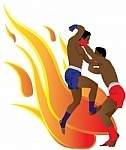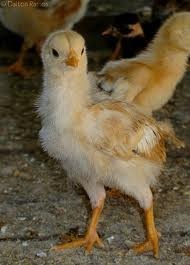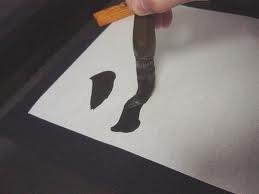P.A. Wilson's Blog, page 26
August 2, 2012
Does the form of the book matter? Ebook, Paperback, Hardcover,
It seems like there is so much out on the interwebs about ebooks versus real books. I wonder how the idea of story fell out of the equation.

I am an ebook reader. I read on my phone and my Kindle. I had a Kobo reader but it died an awful death when I dropped it onto the tiled floor.
When I read posts and articles about the death of books, I wonder if there is a difference in the story whether you read it in a different form.
Hardcovers – the first class experience?
I rarely read hardcovers. They are expensive and heavy. For me it’s like paying ten times the price of an economy seat to fly first class. You are still on the same plane, if it’s late, first class is just as late as economy. You get better food and service in first class, do you get better reading with a hardcover book? I guess the benefit you get with any paper version is being able to pass it along, donate it, or keep it in a mini hoarder kind of situation.
Paperbacks – business class?
While cheaper than hardcovers, paperbacks can be more expensive or cheaper than ebooks. This may change with the class action suit, but being cheaper and lighter than hardcovers makes them at least more accessible. In business class on the plane you do get a bit more service, but it is a disappearing section of the plane. Does this mean the paperback is endangered?
Ebook – economy?
The cheapest seats on the plane and the cheapest (well, depending on the class action suit) form of a book. In economy you get the basics and the cheapest flights. Ebooks so far do much better when they are text only. That will change I’m sure.
I think the story is the same not matter how you read it. The value of the form is what you will pay. As long as there is profit to be made, the publishers will continue to produce the form.
So, what is your favorite form and why?
July 31, 2012
How has your reading changed?
I have thirty plus books on my Kindle and I find I read 3 or 4 at a time. As I was cleaning up the list, I noticed how different the books were in genre and style -they range from experimental science fiction to romantic comedy.
I used to be a fairly focused reader. I would read epic fantasies until I needed a change and then move on to a different genre. Now I read all kinds of books at once and I wonder if that’s changing the kind of books I choose.
The reason I read like I’m at a buffet
I think the main reason is I’m so busy I don’t have the opportunity to lose myself in the world of a book and some stories need that.
I love the fact I can read at any given opportunity on my phone or on my Kindle, but it does make it hard to get into an epic fantasy or a far future vision of humans in space. It does work well for romance, and thrillers, and anything else that is set in a familiar world.
I still love those stories that pull me into a different world, but I find I need a break from the intensity of the experience. What’s great is that now I can. I carry all 30+ books with me at all times.
I read in tastes now instead of in full meals.
How has your life or technology changed the way you read?
As we get older we get busier. Some of us give up things we love because we feel we have to. Some of us search for ways to cling to everything.
How about you? What’s changed for you in your reading habits, preferences, or even in the way you understand story?
July 29, 2012
Ten things authors think about readers
Right up front let me explain I’ve gleaned this list from reading a lot of blogs aimed at writers; new writers and self published writers in particular.

You understand and care about the writing craft. I think you care about a good story, not an analysis of how that story fits into the Hero’s Journey or the 3 act structure.
You care about point of view slips. I think you care about understanding which character you see the story through and if that means multiple people you just don’t want to be confused.
Typos freak you out and make you throw a book/ ereader across the room in a fit of disdain. I think the fast readers don’t even notice most typos and all readers understand that no matter how hard you look, typos exist in all books.
That you care about who published the book. I’m not sure anyone searches for or recommends books by the publisher name.
You think that cheap prices on ebooks are a sign of the quality. See #6
That ebooks should be cheap. I think you like to pay less for ebooks.
You are reading reviews and recommendations on line. I think that might be true.
You are fascinated by our process. I think you don’t care how we write a book, just that we write good ones and don’t take too long between.
You think like a publisher or editor. I think you buy books to enjoy, not because you are trying to assess the marketability of a product.
You hate being told about deals or book launches. I think you hate being spammed, but would expect your favorite authors to give you a heads up.
So, what do you think? Is any of this true? Is there something not on the list something we writers do that makes you crazy. Or don’t do?
July 27, 2012
Mindfulness and serving your community
 I saw this post over at Writer Unboxed and it got me thinking. As writers, do we spend more time finding our community of readers and not enough time serving them?
I saw this post over at Writer Unboxed and it got me thinking. As writers, do we spend more time finding our community of readers and not enough time serving them?
I worry that I spend too much time trying to attract people to my books because I don’t know how to serve a community of readers.
Why I don’t feel like I serve my community of readers
First of all I do think of myself as part of a community of readers. I write books I like to read – I read many genres and that’s why I write in more than one. If a writer doesn’t think about about their readers as a group they belong to, but as a group they lead, there may be a problem in serving the community.
Then there’s the problem of finding out how to serve. As a business person I know how to serve that community. I network and I make good referrals to other business people so they can help my clients in areas where I don’t have expertise. As a resident of New Westminster, I vote, I pay my taxes and I take part in community events.
The thing is, I can’t put aside my writer personality to figure out what my reader personality would like.
What I think I should do is exactly what people tell me I shouldn’t do
Just as in the Writer Unboxed post, the easy thing to do is tell everyone about my books. Even I know how annoying that can be when it’s just a ‘buy my book’ onslaught.
I want to thank people for leaving reviews, but I’m told that way lies dragons of unprofessional flaming. Let’s be clear on that, I am not the type of person to would attack a reviewer for their opinion.
It’s a bit of a Catch 22 – excellent book by the way – I am allowed to give away my books, but I’m not supposed to tell you they are free or on sale.
And, the easiest thing for me to do is talk to other writers. To discuss craft and process and challenges. I’m pretty sure readers aren’t interested in that.
What I am going to do
The great thing about this industry of self publishing in an electronic world is the opportunity and ability to change direction.
I’m going to start asking instead of telling. I’m going to start recommending books – not reviewing because it’s hard for a writer to look objective when they review another authors’ work.
Dear readers, what would you like?
July 23, 2012
Copyright fights are not always bloody
Here’s a post over at The Passive Guy about a copyright infringement. 
Not every cease and desist letter needs to put people on the defensive. And the people over at Jack Daniels seem to understand that everything is about the brand including protecting the brand. I hope this works out for them and the author.
Taking the approach that we all want to solve a problem has always been successful for me. I think there are too many instances where the first contact on such things is intended to create a fight. It seems to me when that happens, it’s more about getting attention than solving the problem.
Let’s hope there will be more Jack Daniels politeness in the universe – that includes the interwebz by the way.
July 21, 2012
Using your strengths while changing skills
In the new world of Indie publishing, many authors are writing across genres. We have the freedom to write the stories we have to tell, rather than fit a marketing concept we have built with the publishing house.

That all sounds utopian. Self published authors get to write what they want and the readers will come. Of course it’s not that easy. An author has a voice, a style that readers can see no matter what the story is. To simplify, some of us are story driven and some are emotion driven. It’s not about character versus plot, it’s about what drives the reader through the book.
Some genres demand specific styles. And if a writer wants to jump genres they need to jump styles.
I’m currently writing a romance series. Now, I know a few things about my writing style. My books are driven by story. The challenge is that romances are driven by emotion.
How to play to your strengths
Find your writing strengths and don’t throw them out because you want to change genres. Make a list of what you do well. You’ll use this to help you through the battle to change, and sometimes it will be a battle. Remember this is about you the writer not your reader.
For me the list looks like this;
I write fast
I plot a good story
I have good pacing
I create quirky secondary characters
Now look at the new genre. What does this demand of the author?
For romance it looks like this;
Emotionally driven
needs a good story
romance is the main plot
Now I know my strengths and what I need to produce. I’m still confident I can get there – and I love a challenge.
Filling the gap
When you have your two lists, I recommend taking a look at your process. This is how I make the transition easier on me. I’m a plotter, not the 80 page outline kind, but I need to plot out the story. I do a fast first draft, then I review it for big holes. Then I keep revising and polishing until I think it’s ready for an edit. This is the core of my process. When you have yours, make notes on how you’ll add the new requirements into your process.
character profiles – make sure there are strong reasons the characters can’t just admit their feelings
plot outline – focus on the romance plot first and then add the story plot
first draft – work as usual, just add feelings to the action even if it’s clumsy. You need the story on the page to fix it.
first revision – add/fix/ increase the emotional reactions.
subsequent revisions – as usual, improve and polish the story
I’m on step 3 right now and struggling to build the emotional layers, but I’m getting there. The important point is I don’t have to get paralyzed because I’m struggling with trying to change my style. I know it will come in layers and I can get the story out of my head and onto the page and fix it there.
I think it’s important for writers to challenge themselves. I believe it makes us better writers. I hope these ideas help you take a step through your comfort barrier and into an exciting new world of story.
July 19, 2012
Is it weird or is it creative?

My window looks out onto a very active river. I find it inspiring and energizing to glance up occasionally to see tugs pulling rafts of logs or barges or huge equipment that serves mysterious purposes.
This is in a window in the building across from me. I think it is Elvis, but I am sure it’s a cultural icon from a different generation or culture.
I first saw the picture yesterday – I have no idea how long it’s been there. The building doesn’t seem to have any rules about curtains there are vertical blinds, horizontal blinds, red curtains, white curtains and this blind.
Weird?
I have to admit my first reaction was Weird. Who puts up their idol posters for the public to see – it would be funny to find out they’d hung it wrong and the face was supposed to be inside the room. It’s not something I would ever do and that’s enough for some people to define it as weird. I did worry that it was going to light up at night – it didn’t – or that others would start to appear across the building.
Creative?
I think this is definitely creative. They’ve taken a space that is supposed to block light and turned it into an art display. I found myself obsessed with getting a picture and sharing it. I had to charge my camera because the phone didn’t zoom well enough. It did disrupt my productivity because I kept glancing at it and trying to figure out if it was Elvis.
In the end
I don’t think I want to see a wall of these pictures. I think that will take away the weird creativity and I like a bit of weird in my life – only a bit. This building is quite a source of that. TVs so large I can practically watch the program with them. Palm trees on a top patio that bend in half in the winds we frequently get here. Interior paint that matches the exterior – I don’t think that was on purpose.
I wonder what they think when they look at my building. How boring, those people all have plain beige window treatments.
July 17, 2012
Why do people assume the worst?
In the last two days Kobo Writing Life launched in North America. The “OMG they are going to rip us off” and “they are trying to destroy indie publishers” Chicken Littling has started.

What I’ve seen so far
A few discussions on LinkedIn and a few questions on people’s blogs. For the most part, it’s been positive and curious. But there have been comments that lead me to believe people don’t even attempt to read the terms and conditions, they just want someone to do the work for them.
“When do I get paid?”
“How do I get paid?”
“How do I upload”?”
All of this is in the Terms and Conditions and you are presented with the highly readable document before you sign up.
Is the sky falling?
Well, I think you need to make that decision yourself. Take Amazon, they provide access for self and indie publishers to a huge market. They let you set your price and pay you a royalty based on that price. But there are people who think this makes them an evil empire out to destroy the competition and then drive prices up, while others see it as a great opportunity.
So, no things are not completely safe, but then again you aren’t forced participate.
My advice
Before you crawl into a closet to avoid the world full of scams, throw a healthy dose of analysis at the information – yes, I know you thought I was going to say common sense, but that’s an oxymoron.
The hallmarks of a scam – Nigerian princes who need you to send them your banking information to collect money. Lawyers settling the estates of unknown relatives – who require you to send them your banking information. Lottery winnings when you didn’t buy a ticket.
Hallmarks of probably not a scam – Terms and Conditions, effort on your part to produce something, clear linking to a valid site. Validations and follow up. Help desks. No request for information to collect something better than you’ve earned.
The bottom line is if you really think it’s a scam, don’t participate.
July 15, 2012
Guest post today on Lightning Book Promotions
I guest posted over at Stormi’s blog today. She asked me to write about my process so the post is aimed at writers. Sometimes I wonder what these posts might mean to readers.

What process means to a writer
For some writers, the process is there to be a tool. It helps them get from the idea to the final form. For others it is a burden, a constant challenge to their endurance and creativity – if it didn’t hurt, it won’t be good.
What process means to a reader
I submit that it means nothing to the reader. A book isn’t better because the author suffered or didn’t. A book is great, or it isn’t.
Some readers may be interested in how their favorite authors actually create the stories. And there’s always that comment (usually admiring) “how do you write a whole book?” But I don’t think anyone is expecting a detailed lecture about pantsing or plotting. Because it just doesn’t matter.
The expression ‘the proof of the pudding is in the tasting’, is true. Not many people want to know how the pudding was made – Food Network, please forgive me – they just want to taste it.
July 14, 2012
Annoucement: Greed now available
 The build up is over. Greed, Book 2 of The Charity Deacon Investigations is available.
The build up is over. Greed, Book 2 of The Charity Deacon Investigations is available.
The links if you are interested:
Amazon for Kindle
Amazon for paperback
Smashwords for all ebook formats
If you haven’t read the first book, Hubris, it’s still 99c for the kindle version until end of day July 14, 2012.



